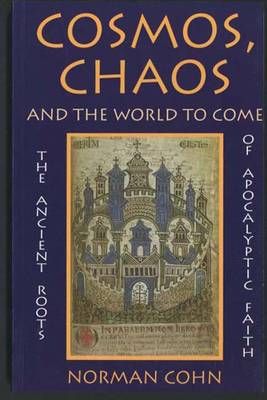Nota Bene
1 total work
This is a study of the origins of the idea of "the world to come". Cohn takes the reader back 2000 years to look at the beliefs of ancient religions and civilizations and their view of the future of man. The millennarian view that the world is moving towards an ideal and perfect future is fundamental to most societies today, but it has not always been so. Cohn shows how the Egyptians, Sumerians, Babylonians, Indo-Iranians and pre-exilic Israelites, among others, believed in a static world in which a divinely pre-ordained order existed, despite the threats of evil, destructive forces like drought, famine or plague. Around 1500 BC, Zoroaster broke with this secure but anxious world-view, arguing that man was moving, through incessant conflict, towards an absolute, safe and divinely-appointed order. That view has dominated religious vision every since, as well as idealist ideologies such as Marxism-Leninism, and remains fundamental to man's philosophy. Cohn's book is therefore an investigation into probably the greatest turning-point in the history of human consciousness.
